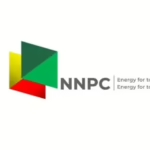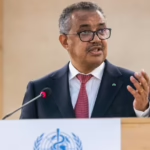The momentum for clean energy adoption in West Africa is gaining significant traction. The 10th edition of the ECOWAS Sustainable Energy Forum (ESEF), recently held in Banjul, set forth groundbreaking commitments aimed at fast-tracking the region’s shift toward sustainable energy solutions.
This landmark event coincided with two major milestones: the 50th anniversary of ECOWAS and the 15th anniversary of the ECOWAS Centre for Renewable Energy and Energy Efficiency (ECREEE), underscoring a half-century of regional cooperation and over a decade of dedicated renewable energy advocacy.
Under the banner “Accelerating Sustainable Energy Infrastructure Solutions for Growth in the ECOWAS Region,” the forum gathered more than 500 participants, including government ministers, diplomats, private sector executives, and development partners, at the Sir Dawda Kairaba Jawara International Conference Centre on September 18-19, 2025.
The agenda was comprehensive, tackling pressing issues within West Africa’s energy landscape. High-level discussions centered on expanding sustainable energy infrastructure, enhancing energy efficiency, and broadening access to clean cooking technologies throughout the subregion.
Innovative approaches to agricultural energy were a key focus, with participants examining the integration of solar-powered irrigation systems and small-scale hydropower projects. Additionally, strategies to promote sustainable transportation and the adoption of electric vehicles were thoroughly explored.
Regional policymakers highlighted the urgency of advancing the ECOWAS Regional Electricity Market and developing West Africa’s Clean Energy Corridors. They emphasized the importance of strong policy frameworks and creative financing solutions to foster public-private partnerships essential for overcoming persistent energy access barriers.
Special attention was given to the interconnected water-energy-agriculture nexus, with calls for scaling up comprehensive projects that incorporate clean mobility options. Stakeholders urged moving beyond pilot programs by mobilizing greater financial resources and harmonizing project implementation across member countries.
Clean cooking solutions dominated policy debates, with a focus on building institutional capacity, creating affordable business models, and expanding access to carbon financing. Participants stressed the necessity of robust collaboration between public and private sectors, alongside the establishment of effective monitoring systems and regional data frameworks to accurately track progress.
Green hydrogen was identified as a game-changing opportunity for West Africa’s energy future. Delegates recommended launching pilot projects promptly, supported by early-stage funding mechanisms to demonstrate viability and scale potential.
The forum also underscored the need to develop certification standards, deepen regional cooperation, and invest heavily in capacity building across the entire green hydrogen value chain.
Francis Sempore, Executive Director of ECREEE, expressed gratitude to Gambian hosts, partners, and attendees for their role in the forum’s success. He highlighted the unique significance of this year’s event, which celebrated both ECREEE’s 15 years of impact and ECOWAS’s 50 years of regional integration.
“ESEF 2025 has showcased our collective dedication to transforming the energy landscape sustainably,” Sempore remarked during the closing session. “The partnerships, innovative ideas, and commitments made here will propel West Africa’s energy revolution forward.”
The forum’s customary awards ceremony recognized exceptional contributions to sustainable energy progress in the region. ECREEE honored individuals and organizations demonstrating excellence in innovation, with special accolades for outstanding business plans under the Regional Off-Grid Electrification and Access Program (ROGEAP) focused on off-grid solar solutions.
Lamin Camara, Permanent Secretary representing Gambia’s Minister of Petroleum and Energy, described hosting ESEF 2025 as a distinguished honor. He noted that the forum’s outcomes resonate deeply with the spirit of ECOWAS’s golden jubilee and ECREEE’s 15th anniversary, reflecting a unified regional commitment to embedding sustainable energy as a foundation for resilience and economic growth.
The forum’s conclusions mark meaningful strides in tackling West Africa’s energy access challenges, where millions remain without dependable electricity despite the region’s vast renewable energy potential.
Emphasizing innovative financing models and private sector engagement signals a strategic pivot toward accelerating the deployment of sustainable energy projects.
Development partners lauded the forum’s holistic approach to addressing the complex, interlinked energy issues while maintaining a strong focus on actionable implementation plans.
By integrating green hydrogen discussions alongside traditional renewable energy initiatives, the region demonstrates a forward-looking stance on emerging energy technologies.
The success of ESEF 2025 positions West Africa as an increasingly attractive destination for sustainable energy investments and highlights its leadership role in Africa’s broader energy transition.
The commitments forged in Banjul are anticipated to shape energy policies across ECOWAS member states in the years ahead.
Ultimately, the conclusion of ESEF 2025 signals not just the end of a pivotal forum but the commencement of an accelerated phase in West Africa’s sustainable energy evolution. Delegates return equipped with actionable strategies and collaborative partnerships poised to drive transformative change throughout the region.

















